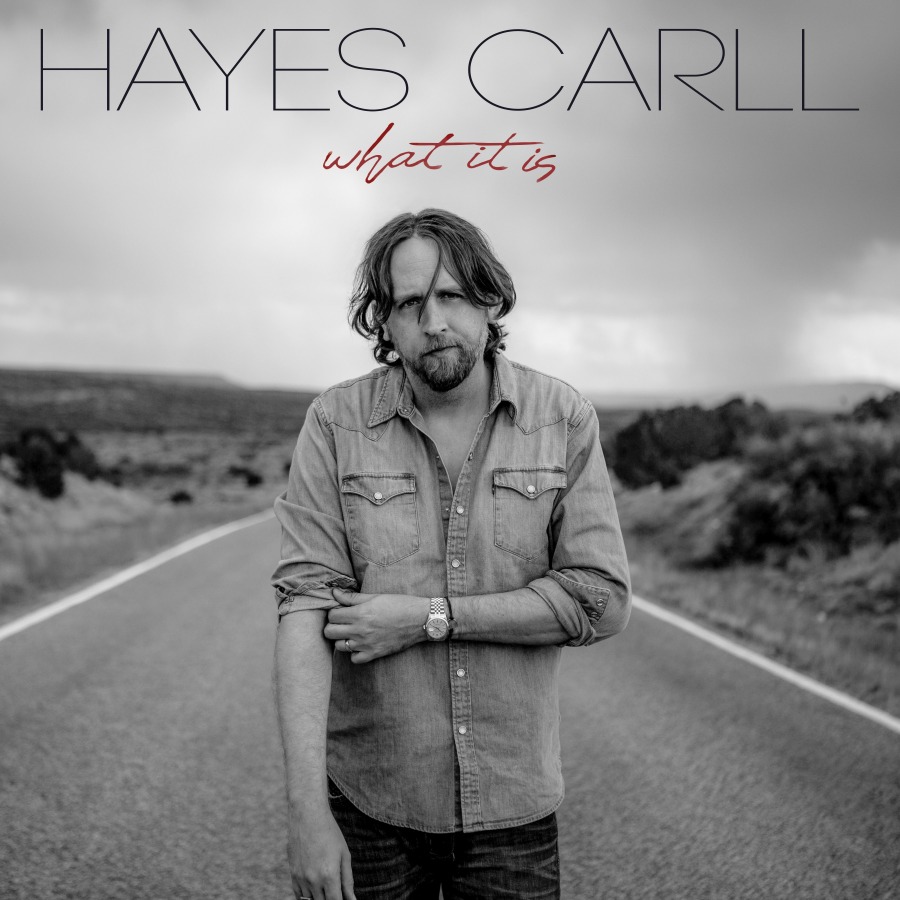The short version: Hayes Carll’s ‘What It Is’ doesn’t have a poor foundation, but it suffers from a lack of expansion and poor execution.
- Favorite tracks: “Be There,” “Beautiful Thing,” “Times Like These,” “Fragile Men”
- Least favorite track: “Jesus and Elvis”
- Rating: 5/10
The long version: Life’s messy, and sometimes the art we hear reflects that.
Hayes Carll’s musical output over this decade has reflected that too, as after the wild experiment that was 2011’s KMAG YOYO, he settled down for 2016’s singer-songwriter effort, Lovers and Leavers. In essence, they’re two entirely different projects, and they themselves were different from Carll’s output even before that. As such, when his new album, What It Is was described as both a reflection on the current times we live in as well as a reconnection with Carll’s original style, it was up to the listener to decide what would come of it.
While not a bad album, What It Is feels too messy, scattershot and incohesive to call it great. It’s an album that explores many different concepts without going beyond a surface level analysis, all while featuring underweight production.
It’s hard to tell exactly what Carll was going for thematically on this album, but the lyrics hearken back to his usual drunken musings and humorous observations. Sometimes it connects, such as on the old school rock ‘n’ roll tinged “Beautiful Thing” with its jauntier piano line. “If I May Be So Bold” recalls the best of rockabilly with a great bass line driving a track where Hayes is content with chipping away at life at his own pace.
Other times though, the situations feel undercooked or too outlandish to lead to any deeper meanings. While you could argue that’s the point of the subtext underneath it, the actual text rarely supports it. “None’ya,” beyond feeling like just a decent demo, tries to frame a toxic relationship as ultimately healthy because they need each other … or something like that. The examples used to try and justify why these two would ever want to be together feel vague, and the examples of the fights they get into also feel too oddly specific to delivery the right amount of humorous punch. It’s one of those cases where “just because” tries to cut it and just doesn’t.
That’s essentially the backbone behind other tracks too – oddly specific situations that don’t lead to any sort of payoff for the listener. Take “Things You Don’t Wanna Know” for example, where Carll rambles on about a conversation between him and his spouse. Beyond the song feeling list-like in its execution, when one of the verses entails her asking, “who’d you leave at the bar?,” I have a few questions as a listener that go unanswered!
Sure, this sense of isolated bemusement can work on something like “Beautiful Thing” where the stakes aren’t as high, but when you get to something like “Jesus and Elvis,” you find yourself wishing the song had focused on the pain that still lingers on for a mother of a deceased veteran instead of tenuous, tacky parallels between Jesus and Elvis Presley.
The thing with What It Is is that there isn’t even a cohesive theme running throughout this album. There’s mostly two types of tracks on this album – the aforementioned “personal” tracks where Carll revisits familiar themes, and the “political” tracks, or rather, the tracks where he reflects on the world around him.
About the only time Carll touches on something truly timely and important is “Fragile Men,” a track that taunts men in power coming to grips with accusations of multiple stripes. But Carll doesn’t really offer any solutions or answers to the problems otherwise. Instead, he mostly throws his hands up in the air and lets fate take the wheel, and while that’s an understandable response in some cases, it doesn’t make for interesting art. The title track is a fun bluegrass-inspired song, but it’s here where the criticisms of surface-level meanings come into play, as all this track basically says is, “things have changed.” No kidding.
Like with “Beautiful Thing,” when the stakes are lighter like on “Times Like These,” you get a nice dosage of fiddle-driven country rock. Other times you’ll get something like “Wild Pointy Finger” where the focus, like with “Jesus and Elvis,” focuses more on the features of his hand rather than pointing blame at both sides like it was intended to do. It’s not that the concepts aren’t interesting, it’s that they don’t go further or feel like there’s any deeper stakes involved.
Of course, none of this is helped by Carll’s offbeat melodic flow or tired deliveries. Sure, that’s the entire point of the album, but if it was helped by better production, it might have been at least a tad more tolerable. “Things You Don’t Wanna Know” seems to be missing a lot in the low end, and “Jesus and Elvis” tacks on old school piano and ragtime horns to create that more serious atmosphere, but again, it’s supporting a song where the deeper meaning isn’t explored.
There’s two tracks that don’t connect at all with the album. One is “I Will Stay,” which is a decent, but predictable acoustic love song that feels weird matched up against “None’ya” and “Things You Don’t Wanna Know.” The other is the genuinely excellent, “Be There,” a track that goes for nothing except an honest, brutal gut punch of a hook. It’s here where that tired resignation pays off and the history is implied and expanded upon with anguished frustration. Between featur its fantastic acoustic foundation complete with warm steel and a lush string section, this is by far the best moment on the record.
What It Is doesn’t suffer from a poor foundation. Really, this album could have been better if it had decided on a concept or expanded upon what it already did. Instead, while we did get “Be There” as well as a few other decent cuts, What It Is suffers from poor execution all around.

